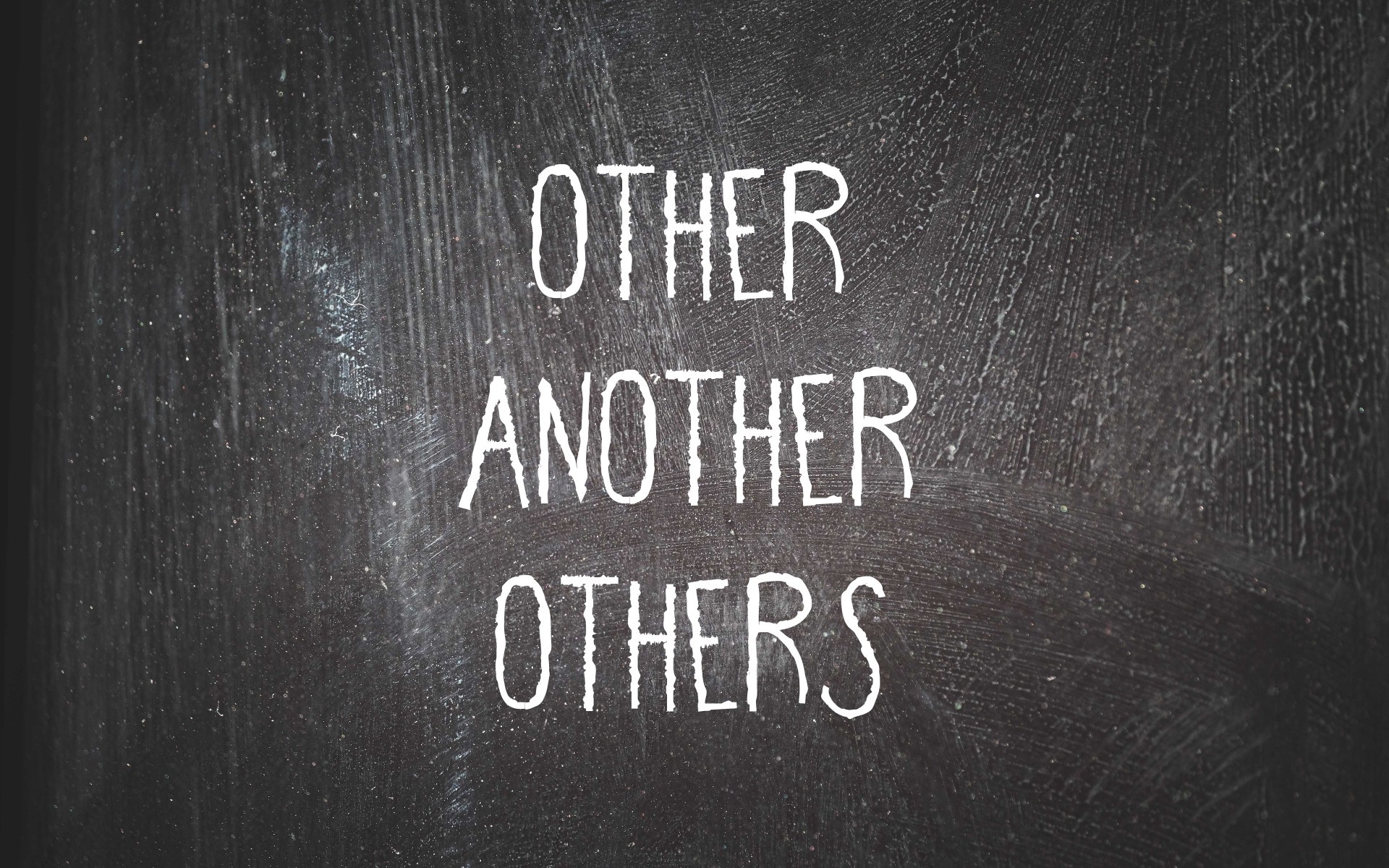Three words that students often confuse: other, others, and another. What’s the difference between them and when to use which? Read on for a few basic explanations and some grammar practice suitable for students at A2 / B1 level.
OTHER
Other is a determiner – an adjective that stands before nouns. Since it’s an adjective, it never takes a plural form. It means ‘additional’ or ‘different’. It can be used with uncountable nouns or, much more commonly, with countable nouns in plural. You can also use it with the pronoun ‘one(s)’.
Let’s meet some other time.
Do you have any other books?
This book is so boring. That other one was much more interesting.
ANOTHER
When you look at this word, it’s clearly a combination of the indefinite article a(n) + other. It has the same meaning as OTHER above, but we use it before singular countable nouns, or the pronoun ‘one’:
Can I get you another cup of coffee? (i.e. an additional one)
I finished the book last night, so I started reading another one this morning.
OTHERS
This word is not an adjective / determiner, but a pronoun. It replaces a plural noun:
I don’t like these gloves. Are there any others? (i.e. any other gloves)
Go play with others. (i.e. with other children)
So, to repeat:
OTHER (adjective) + uncountable and plural countable nouns / pronoun ‘one(s)’
ANOTHER (adjective) + singular countable nouns / pronoun ‘one’
OTHERS (pronoun)
You can now do a simple grammar quiz and check your knowledge! To start, click here.
And if you are at a more advanced level, have a look at this selection of links for additional study:
Other, The Other and Another (a VOA Learning English feature)
Other, others, the other or another? (a Cambridge Dictionary page)

